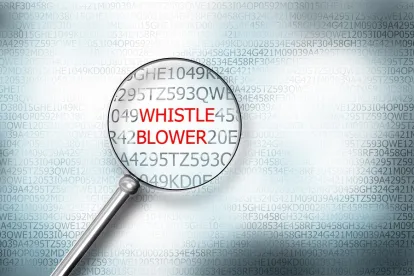After a dip in the 2018 fiscal year, False Claims Act (FCA) settlements and judgments are back and climbing. The Department of Justice (DOJ) recently announced that it had obtained more than $3.05 billion from FCA settlements and judgments for the 2019 fiscal year. 2018 may have just been an aberration after the 2010s saw steady increases in FCA recoveries. This is particularly true because 633 new qui tam suits (12+ per week) were filed last year.
DOJ’s press release also reported that whistleblowers personally recovered over $271 million in payments under the FCA’s terms of whistleblower remuneration. DOJ recovered over $2.2 billion in those qui tam suits. This far outstrips the 146 direct enforcement actions brought by DOJ without a whistleblower, and highlights the strong incentive behind the 1986 amendment for individuals to pursue FCA claims.
Healthcare-related Recoveries Remain on Top
The healthcare industry continued to drive the vast majority of FCA recoveries. In the 2019 fiscal year, healthcare-related FCA recoveries totaled $2.6 billion—approximately 85% of all FCA recoveries combined. 2019 is the tenth straight year in which healthcare recoveries have exceeded $2 billion. Furthermore, the $2.6 billion only includes federal losses, and does not count recoveries for state Medicaid programs where DOJ provided assistance.
Notably, FCA recoveries on healthcare cases brought directly by DOJ totaled over $695 million, which is the second most since the 1986 amendment to the Act. This underscores the government’s proactive approach to FCA enforcement in the healthcare industry.
The majority of the healthcare-related FCA recoveries involved not only pharmaceutical companies, a traditional hotbed industry of activity, but also managed care facilities, hospitals, pharmacies, hospice organizations, laboratories, electronic health records vendors, physicians, and other entities. This demonstrates an increasing interest in pursuing FCA enforcement actions against the entire health care supply chain. An unusual healthcare case involved a settlement with a private equity firm that owned a prescription company to resolve a lawsuit alleging false claims submitted to Tricare, the health care program for the military. It has historically been uncommon to see FCA enforcement actions brought directly against shareholders, including private equity firms, and signals a more aggressive shift in policing this industry, and the financing behind it.
Other Notable Recoveries
DOJ prosecuted a diversity of fraud-related activities under the FCA in 2019. The second-most prominent area of investigation surrounded procurement-related fraud, which saw the largest jump in settlements and judgments over any other sector from 2018 to 2019 by a total of $144,634,528 or 135%.
Unconventional FCA enforcement actions included a $112.5 million settlement with a university to resolve allegations that it falsified research on federal grants to the National Institutes of Health and Environmental Protection Agency; a $3.5 million settlement to resolve allegations of a scheme to reduce mineral royalty payments for natural gas removed from federal lands; a $1 million settlement to resolve allegations of falsely certified compliance with federal environmental laws to the Oceanic and Atmospheric Administration, an agency within the Department of Commerce; and a $2.5 million settlement paid by another university to resolve allegations about a student recruiting company based on the number of students who enrolled in violation of Title IV of the Higher Education Act. Regardless of the context, companies and individuals are at risk of prosecution under the FCA when making a false statements to government agencies.
Conclusion
Statistics released by the DOJ show that the increased value of FCA settlements and judgments in the 2019 fiscal year is part of a larger trend, and the FCA will likely remain a favored tool of law enforcement. The financial incentives underpinning qui tam suits will continue to embolden whistleblowers to spend time and money pursuing FCA cases. Any companies with exposure to the FCA, including healthcare companies and those that rely on government contracts, should seek to proactively identify potential violations and develop a strong compliance function to prevent and deter any unlawful activity.






 />i
/>i

